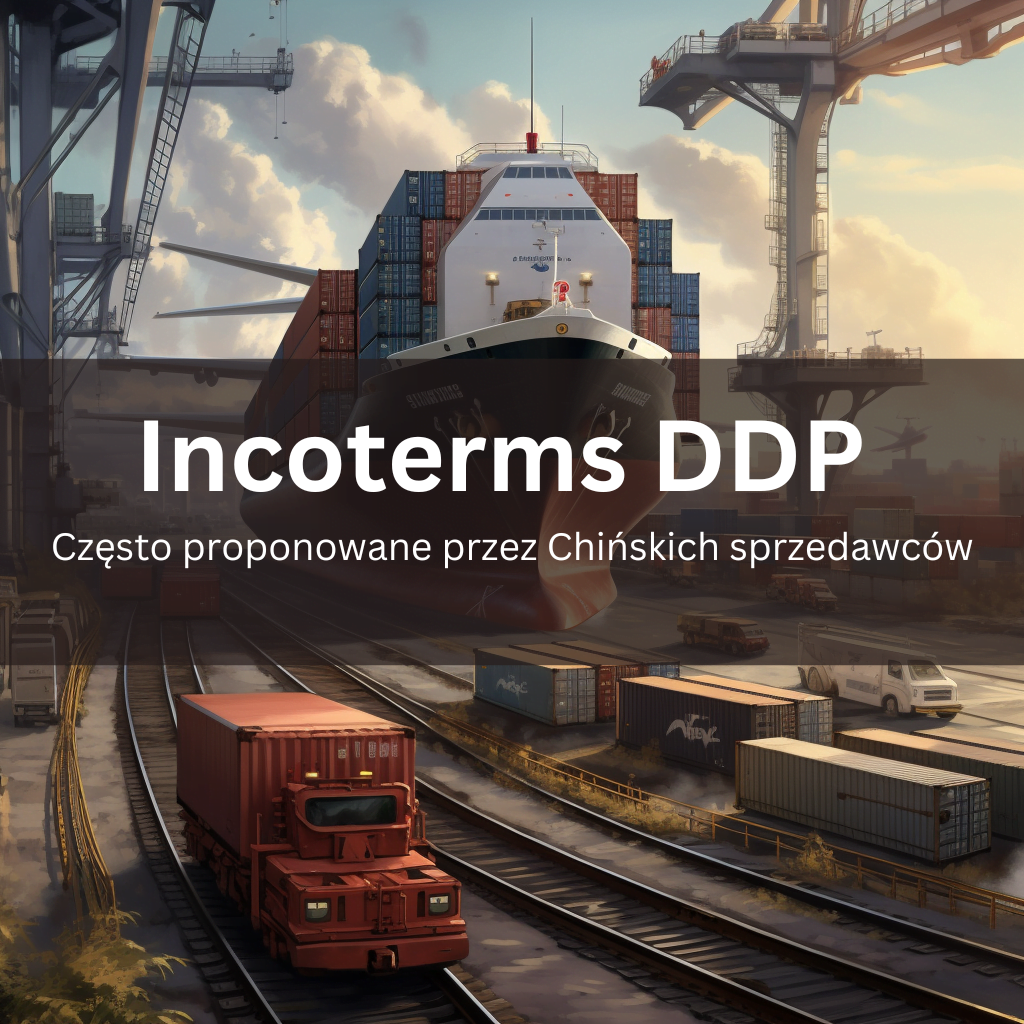What are INCOTERMS 2020 ?
INCOTERMS rules are an international set of trade rules that apply worldwide. They are used in international transactions and Incoterms define the responsibilities, costs and risks between buyer and seller. The author of Incoterms is the International Chamber of Commerce (ICC), which created the rules to facilitate smooth and efficient international trade.
What is DAP Incoterms?
Incoterms DAP or Delivered at Place means delivered to a place. The seller is obliged to deliver the goods to the designated place. For example, if the transport is carried out on DAP Gdańsk, the seller will deliver the goods to the port of Gdańsk, where the goods will already be ready for collection with port costs paid. The rule can be applied to all modes of transport. It is important to specify the exact point of destination of the delivery, as the seller bears the risk of damage to the goods and all costs up to the point that has been agreed. Once delivered to the specified point, the risk passes to the buyer. The costs of transport to the destination on the DAP formula are borne by the seller and the buyer only has to collect the goods. The seller is responsible for arranging customs clearance export clearance is the responsibility of the seller, while import clearance must be done by the buyer once it has reached the place of delivery.
Vendor responsibilities:
- The seller is obliged to deliver the goods as well as the commercial invoice and other necessary documents.
- The seller is obliged to conclude a contract of carriage by sea, rail or air and to deliver the cargo to the agreed place of delivery, most often he will deliver the cargo to a port, terminal rail or aviation. Most often on a DAP formula, the port to which the cargo is to be delivered is selected, all costs associated with the cargo are paid and it is ready for the buyer. The buyer then has to clear customs and collect the goods.
- The seller bears the risk of loss or damage until the goods are delivered at the designated place, after which the risk passes to the buyer.
- The seller is not obliged to conclude a contract cargo insurance but must provide all necessary data for the buyer to obtain insurance.
- The costs of quality control, measurements and weighing are also borne by the vendor,
- The seller must pay all costs of packaging the goods for dispatch.
Responsibilities of the buyer:
- The buyer is obliged to pay the costs included in the sales contract
- The buyer is obliged to take over the goods once they have been placed at the agreed place.
- The buyer shall bear the risk of damage or loss to the goods from the time the goods are delivered at their destination.
- Further transport costs from the time the seller delivers the goods at the designated point are to be borne by the buyer. In this he is responsible for arranging further delivery to the place of delivery.
- The buyer is responsible for carrying out import clearance in the destination country. He must also bear the costs associated with the clearance.
- If the destination is the port of Gdansk or any other place, the costs of delivery from the port to the destination, e.g. to the customer's warehouse, shall be borne by the buyer.
DAP formula and delivery to a specific address:
In the DAP formula, the cargo is to be shipped to a specific destination. This can be a port, which is the case in most cases, but it can also be shipped directly to an address. For example, when sending a cargo on DAP Gdańsk and specifying the exact destination address, the seller will have to deliver the goods to the indicated place. It is therefore advisable to specify this information.
Summary of DAP INCOTERMS:
On the DAP formula, most of the responsibilities lie with the seller, which is why this formula is often used for exports. For example, a company exporting particular products abroad delivers the cargo to its customers in a very convenient way, as all that is left for the customer at the destination is to collect the goods from the port, airport or terminal, or the goods can be delivered completely to the customer's warehouse. The most important things that the buyer has to take care of are the insurance of the goods, the import clearance and the collection of the goods.
Read also about other INCOTERMS 2020 on our blog:




